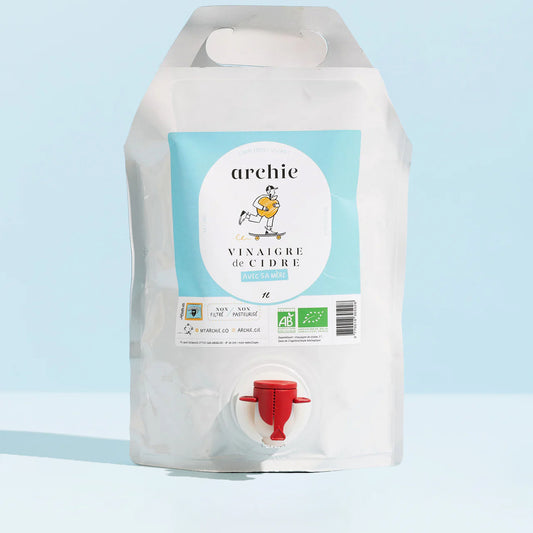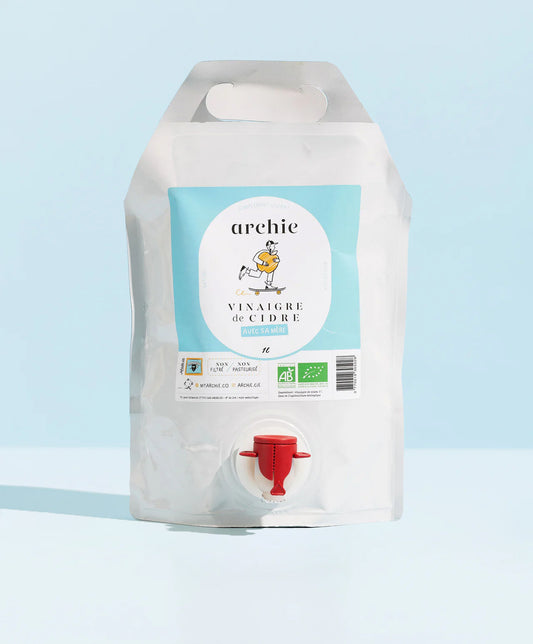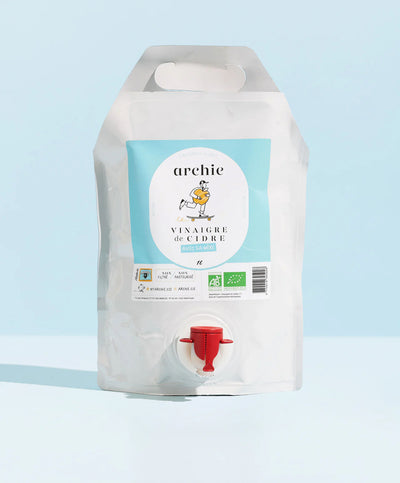Stomach aches can be a real source of discomfort , disrupting our daily lives. Fortunately, there are natural solutions to relieve these inconveniences. Here are seven grandmother's and natural remedies that will allow you to effectively relieve stomach aches. Discover in detail the benefits of cider vinegar, ginger, baking soda, chamomile tea, aloe vera, activated charcoal and fennel seeds, in the article below.
Understanding the Causes and Symptoms of Stomach Aches
Causes of gastric discomfort
Stomach aches can have a variety of causes. Some of the most common include:
Digestive disorders such as indigestion, gastroesophageal reflux and ulcers, often caused by excess stomach acid or poor digestion.
An unbalanced diet , rich in fatty, spicy or acidic foods, which can irritate the gastric mucosa and cause pain.
Stress and anxiety , which can affect digestion by altering stomach acid production and intestinal motility.
Gastrointestinal infections caused by bacteria or viruses, such as gastroenteritis, which cause inflammation and abdominal pain.
Excessive consumption of alcohol or caffeine , which irritate the stomach lining and can cause heartburn and cramping.
Food intolerances : Some people are sensitive or intolerant to specific foods such as lactose (in dairy products), gluten (in wheat, barley and rye), or certain food additives, leading to abdominal pain, bloating, heartburn, transit problems and digestive disorders.
Medications : Certain medications, such as nonsteroidal anti-inflammatory drugs (NSAIDs), antibiotics, and iron supplements, can irritate the stomach lining and cause stomach pain.
Gastrointestinal motility disorders : Conditions such as irritable bowel syndrome (IBS) can impair the normal movement of intestinal muscles, causing cramping and pain.
Signs and symptoms to watch for
Symptoms of an upset stomach vary depending on the cause, but may include:
Abdominal pain or cramps : A feeling of pain or tightness in the stomach area.
Bloating and gas : A feeling of fullness and pressure in the abdomen, often accompanied by flatulence.
Nausea and vomiting : Feeling sick or recurrent vomiting, often related to poor digestion or gastric irritation.
Burning sensation in the stomach or behind the breastbone, usually caused by acid reflux.
Slow digestion and heaviness after meals: Feeling of not digesting food properly, often linked to inefficient digestion.
1. Apple cider vinegar: balance and relief
Apple cider vinegar is known for its alkalizing properties that can help restore the acid balance in the stomach and improve digestion , helping to reduce bloating, fight heartburn, acid reflux... It is rich in acetic acid , which has antimicrobial properties and can help break down fats.
Discover all the benefits of cider vinegar and our products.
Tips for using apple cider vinegar
To use apple cider vinegar, mix one tablespoon into a glass of water. Drink this mixture before meals to improve digestion and reduce symptoms of indigestion . Apple cider vinegar can also stimulate the production of digestive enzymes , making it easier to break down food. For a more pleasant taste, you can add a spoonful of honey or a few drops of lemon.
Apple cider vinegar can also be used externally for stomach pain related to muscular causes . To do this, dilute it in warm water and apply it with a warm compress on the abdomen . This method can help relax the muscles and relieve pain.
Discover our products to aid digestion.

2. Ginger, an anti-inflammatory ally
Known as a home remedy for years, ginger is a powerful natural remedy for inflammation and nausea . It contains active compounds such as gingerols and shogaols, which have anti-inflammatory and antioxidant properties. These compounds help stimulate the production of saliva and bile, thus improving digestion.
How to Use Ginger to Soothe Your Stomach
To enjoy the benefits of ginger, you can consume it in the form of tea . Steep slices of fresh ginger in hot water for 10 minutes. Add honey or lemon to improve the taste and increase its benefits.
You can also add grated ginger to your meals or take ginger supplements available at the pharmacy. Ginger is particularly effective in reducing nausea, including that caused by pregnancy, chemotherapy, or motion sickness. You can also chew pieces of candied ginger or take ginger candy for quick relief.
In addition to tea, you can prepare a tonic drink by mixing grated fresh ginger with lemon juice and hot water. This drink can be consumed in the morning to stimulate digestion throughout the day. Ginger can also be used in cooking, adding not only a tangy flavor but also digestive benefits to your dishes.

3. The natural soothing effect of baking soda
Baking soda is often used to neutralize stomach acid , providing fast relief from heartburn and indigestion . It acts as a natural antacid by neutralizing excess hydrochloric acid in the stomach.
Directions for use for fast relief
Dilute half a teaspoon of baking soda in a glass of water. Drink this mixture slowly to relieve heartburn . Baking soda works by neutralizing excess stomach acid, thereby reducing pain and discomfort.
However, do not use this method on a regular basis , as excessive use can lead to electrolyte imbalances and side effects like bloating or metabolic alkalosis. It is important to consult a doctor before using baking soda regularly, especially if you have any pre-existing medical conditions .
Baking soda can also be used as a mouthwash to reduce acidity in the mouth and prevent acid reflux. Mix one teaspoon of baking soda in a glass of water and rinse your mouth after meals.

4. The virtues of chamomile tea
Chamomile is also recognized among grandmother's remedies for its soothing and anti-inflammatory properties. It can help reduce muscle spasms in the stomach and calm inflammation of the gastric mucosa. Chamomile contains flavonoids that have antioxidant and anti-inflammatory properties. It also helps fight heartburn and acid reflux.
Preparation and use to calm the stomach
To make chamomile tea, steep one tablespoon of dried chamomile flowers in one cup of boiling water for 5 to 10 minutes. Drink this tea before meals or when you experience stomach pain for natural relief.
Chamomile can also help reduce stress and anxiety , which are often aggravating factors for stomach upset. For an even more soothing effect, you can add a few drops of honey or lemon juice. Chamomile can also be used in capsule form for a more convenient alternative to tea, or in essential oil form, a few drops of essential oil in a glass of water or in an infusion.
You can also make chamomile compresses to soothe abdominal pain. Soak a cloth in warm chamomile tea and apply it to your abdomen for muscle relaxation and pain relief.

5. Aloe vera, much more than a skin care product
In naturopathy, aloe vera is also beneficial for digestive health thanks to its anti-inflammatory and healing properties. It contains polysaccharides that can soothe and repair the stomach lining, and enzymes that aid in digestion .
Using Aloe Vera for Digestive Problems
Consume pure aloe vera juice, available at health food stores, following the recommended dosages on the package. Aloe vera can help reduce irritation of the stomach lining, improve digestion , and prevent ulcers. Be sure to choose a product intended for internal consumption and not a gel for topical use.
Aloe vera can also help regulate bowel movements and prevent constipation . To maximize its benefits, take aloe vera on an empty stomach in the morning or before meals. You can also incorporate it into smoothies or juices for a more pleasant taste.
For external use, aloe vera can be applied directly to the abdomen to relieve pain related to external inflammation or skin irritations. The cooling properties of aloe vera can also provide soothing relief.

6. The effectiveness of activated charcoal against bloating
Activated charcoal is used for its ability to absorb gas and toxins in the digestive system, which can help reduce bloating and gas. It works by trapping chemicals in its pores, preventing them from being absorbed by the body.
Activated Charcoal User Guide
Take activated charcoal capsules as directed by the manufacturer, usually after meals or when you feel bloated . Activated charcoal works by trapping gas and unwanted substances in its porous network, reducing symptoms of bloating. Be sure to drink plenty of water to avoid constipation and allow the charcoal to move through your digestive system .
Note that activated charcoal may interfere with the absorption of medications , so consult your doctor if you are taking prescription medications. For optimal effect, take activated charcoal one hour before or two hours after meals or medications.
Activated charcoal can also be used as a mask to reduce skin impurities, but for digestive problems it is essential to use it in the form of capsules or consumable powder.

7. Fennel seeds, a gentle solution against cramps
Among our grandmother's remedies is fennel seeds which are known for their antispasmodic and digestive properties. They can help relax the smooth muscles of the stomach and reduce cramps and gas. Fennel contains anethole, a compound that helps soothe the stomach and aid digestion .
How to Incorporate Fennel Seeds into Your Diet
Chew a teaspoon of fennel seeds after meals to aid digestion and reduce bloating. You can also make an infusion by boiling a teaspoon of fennel seeds in a cup of water for 10 minutes. Fennel contains compounds like anethole that help soothe the stomach and improve digestion .
You can also add fennel seeds to your dishes or grind them into a powder to sprinkle on your food. Fennel can also be taken in capsule form or as a liquid extract for a more concentrated and convenient option.
Fennel can also be incorporated into cooked dishes such as soups, stews or salads to add a subtle flavor and benefit from its digestive benefits. For children, fennel can be added to compotes or yogurts to aid digestion.

Preventive advice
Diet and lifestyle habits to prevent stomach upset
To prevent stomach upset, eat a balanced diet that is high in fiber and low in irritating foods such as fatty, spicy, and acidic foods. Eat slowly and avoid large meals to aid digestion. Stay hydrated by drinking water throughout the day and limit caffeine and alcohol intake.
Get regular physical activity to boost digestion and maintain a healthy weight. Finally, learn to manage stress and anxiety through relaxation techniques such as yoga, meditation or breathing exercises, as stress can exacerbate digestive problems.
By incorporating these natural home remedies and tips into your daily routine, you can significantly reduce stomach upset and improve your overall well-being. Take a proactive approach by monitoring your diet, staying active, and using these natural remedies to prevent and relieve stomach upset.



























